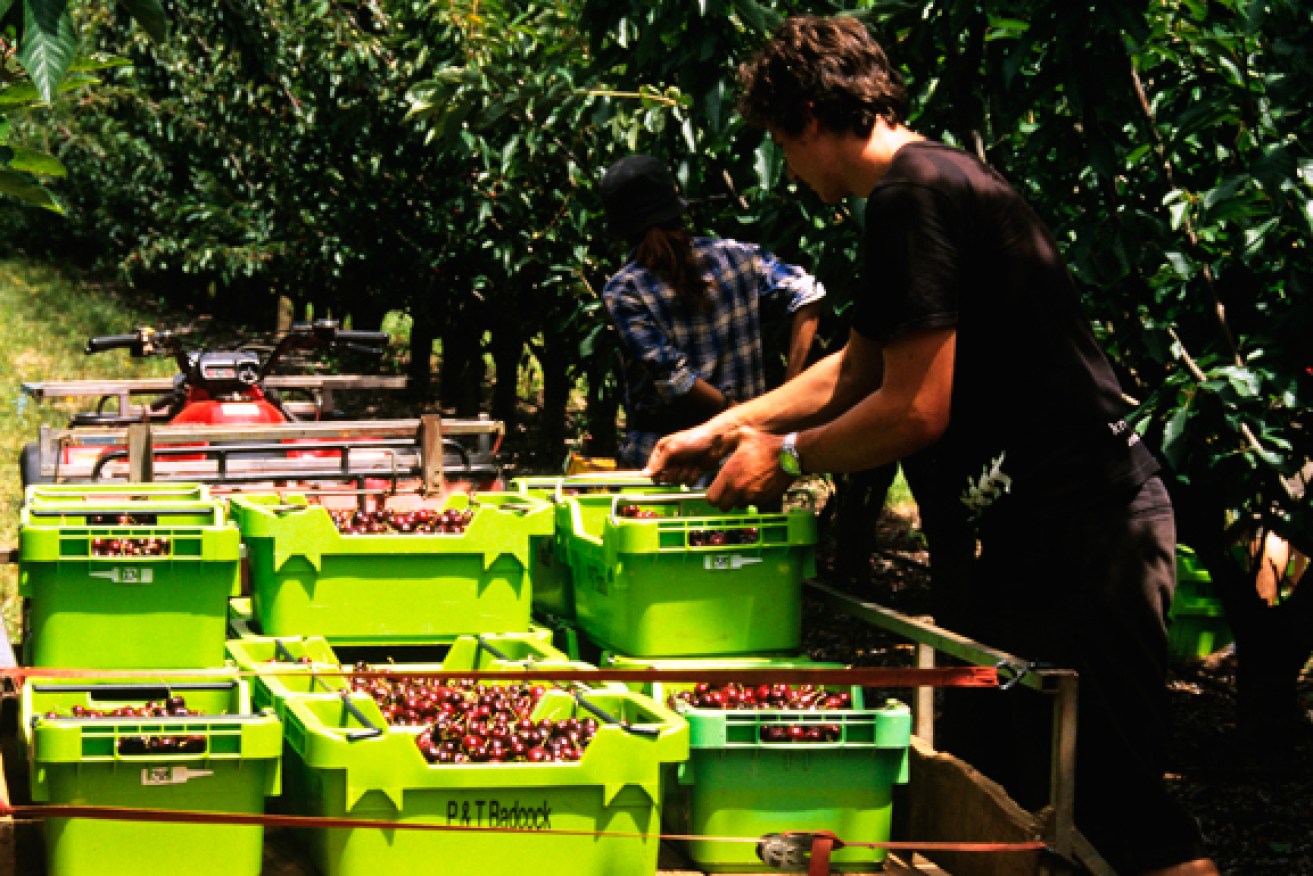Govt reviews backpacker tax

Getty
The federal government is reviewing its so-called backpacker tax, set to kick in from July, due to concerns about the impact it could have on agriculture and tourism.
Tourism Minister Richard Colbeck says Prime Minister Malcolm Turnbull has given him the go ahead to engage with ministers in agriculture, immigration, employment and industry to come up with an alternative to current plans under which foreign workers will be considered non-residents from July 1.
The existing plan, announced last year, would scrap the $18,200 tax-free threshold for overseas workers and instead tax them at 32.5 cents in the dollar on everything they earn, making working holidays less attractive.
• New tax threatens our favourite fruits
• Trump, Clinton dominate key primaries
• Jalal brothers earn fortune from prank videos
That could leave farmers struggling to find labour to pick crops and hit the tourism industry, which relies on foreign workers for 10 per cent of its workforce.
“We recognise that the workforce is vital to two of our super growth sectors,” Senator Colbeck told Wednesday’s Destination Australia tourism conference in Sydney.
“There have been legitimate concerns raised so we’ve decided the proposed tax arrangements require further discussion to ensure we don’t lose our market share in this space.”
Senator Colbeck said he will lead the cross portfolio discussions and take a proposal back to the treasurer for cabinet consideration.
“This is the start of a process; its not a solution,” he said.
“We really do need to look at addressing the situation.”
Senator Colbeck cautioned against creating a tax advantage for particular classes of worker and said any alternative would have to be “revenue neutral”.
The Tourism and Transport Forum industry group welcomed the review of what it called “a foolhardy tax grab”.
“It makes no sense to slap a 32 percent tax on backpackers when they have an entire world of destinations from which to choose,” TTF chief executive Margy Osmond said.
“The backpacker tax is poised to smash the workforce for tourist operators who rely on working holiday makers in seasonally sensitive and remote regions, where a local workforce simply isn’t available.”
– AAP







